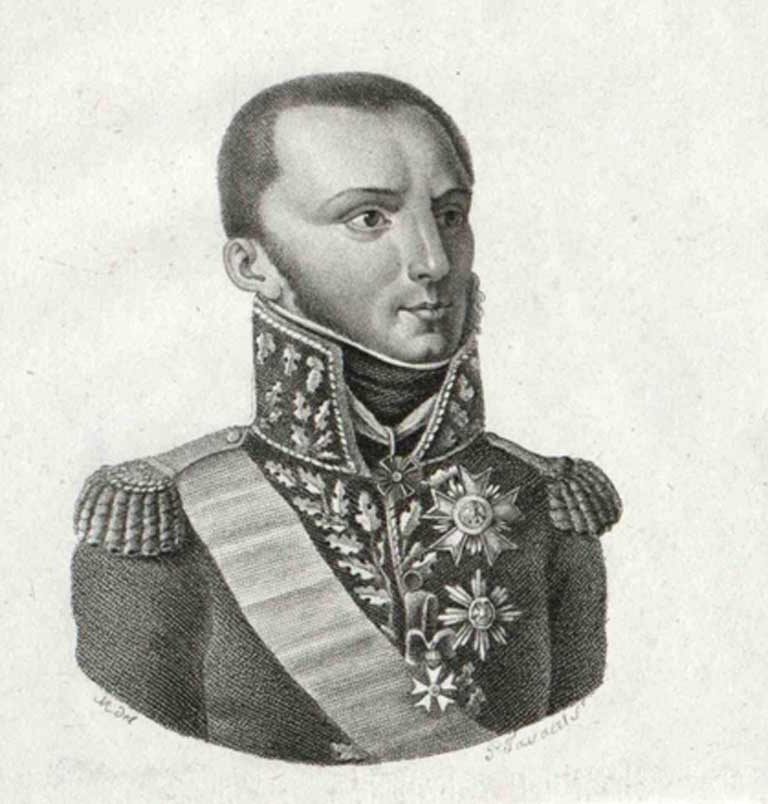Armand Caulaincourt, or Armand Augustin Louis De Caulaincourt interesting facts are quite knowledgeable and full of surprises. Armand Augustin Louis De Caulaincourt’s legacy extends beyond the pages of history. His life, a vivid tableau of victories and defeats, diplomacy and warfare, weaves an intricate narrative that continues to captivate and intrigue. As we delve into the layers of Caulaincourt’s existence, we find not just a figure from the annals of the past but a living testament to the complexities and contradictions inherent in the pursuit of power and the quest for peace.
Armand Augustin Louis De Caulaincourt Interesting Fun Facts
Armand, marquis de Caulaincourt, emerged onto the world stage on December 9, 1773, in the quaint town of Caulaincourt, France. His intriguing life journey reached its conclusion on February 19, 1827, in the vibrant city of Paris. This distinguished figure played multifaceted roles in the tapestry of French history—commander, diplomat, and eventually the foreign minister during the reign of the iconic Napoleon Bonaparte.
1. The Committed Companion in Napoleon’s Triumphs and Trials
From the pivotal year of 1804, Caulaincourt assumed the significant mantle of being the Emperor’s devoted master of the horse. This role propelled him to the forefront of Napoleon’s grand conquests, placing him unwaveringly by the Emperor’s side throughout the tumultuous expanse of major wars. Caulaincourt’s contribution and unwavering loyalty make his Mémoires a treasured repository of insights, particularly shedding light on the intricate happenings of the years 1812 to 1814.
2. The Diplomat at Crossroads: Negotiations and Challenges
Caulaincourt’s diplomatic prowess came to the fore when he skillfully negotiated an armistice in Silesia during the fateful month of June in 1813. This adept negotiator also found himself at the center stage of an ambitious yet unsuccessful conference in Prague, where the intricate dance of diplomacy unfolded. His endeavors as a “man of peace” became more pronounced after the Battle of Leipzig, a significant turning point that saw Caulaincourt assume the role of foreign minister.
3. The Ill-fated Congress and the Unraveling of Hopes
Despite Caulaincourt’s earnest endeavors as a harbinger of peace, Napoleon’s ambitions were not aligned with diplomatic resolutions. The congress of Châtillon, envisioned as a beacon of reconciliation, collapsed by mid-March 1814. The intricate web of geopolitical maneuvers and the relentless pursuit of power thwarted Caulaincourt’s efforts, revealing the complex and often treacherous world of international relations during this tumultuous period.
We hope you have enjoyed these Armand Augustin Louis De Caulaincourt interesting fun facts
More Interesting Articles
- 40 Interesting Fun Facts about Egyptian Queen Cleopatra
- 30 Surprising Mary Queen of Scots Interesting Fun Facts
- 38 Maya Angelou Activist Writer Interesting Fun Facts
- 26 Adam Smith Father of Economics Interesting Fun Facts
- 29 Philosopher Rene Descartes Interesting Fun Facts
- 10 Fun Interesting Facts about Aristotle Greek Scientist
- 10 Interesting Fun Facts about Archimedes Greek Mathematician
- 23 Edgar Allan Poe American Writer Interesting Fun Facts
- 20 Abraham Lincoln 16th US President Fun Interesting Facts
- 10 Interesting Facts about George Washington 1st US President
- 20 Theodore Roosevelt 26th US President Interesting Fun Facts
- 22 Nikola Tesla American Scientist Interesting Fun Facts
- 31 Martin Luther Reformer Interesting Fun Facts
- 19 Booker Washington Black Leader Interesting Fun Facts
- 37 Paul Klee German-Swiss Artist Interesting Fun Facts
- 20 Sir Francis Drake English Explorer Interesting Fun Facts
- 20 Franklin D Roosevelt 32nd US President Interesting Fun Facts
- 30 John Adams 2nd US President Interesting Fun Facts
- 33 Woodrow Wilson 28th US President Interesting Fun Facts
- 31 Thomas Jefferson 3rd US President Interesting Fun Facts

